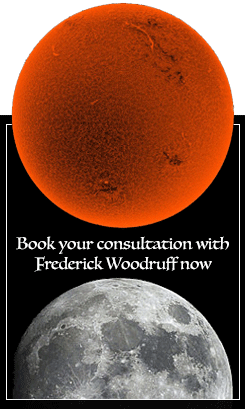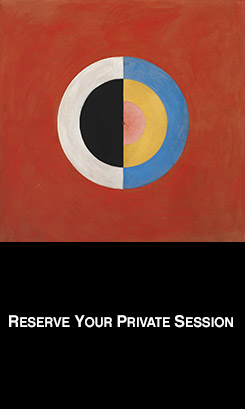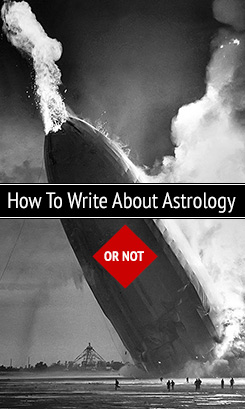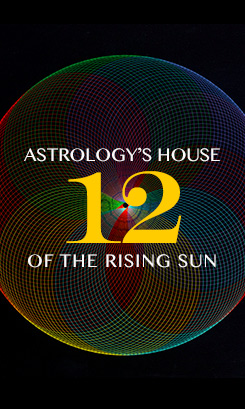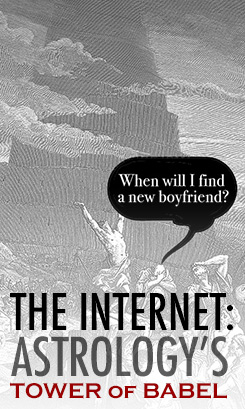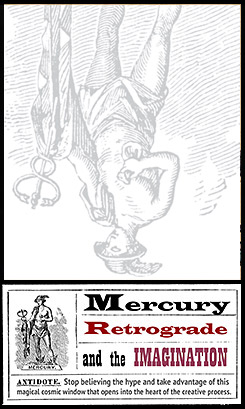Inside Twitter: 12 Secrets and Hard-Won Insights
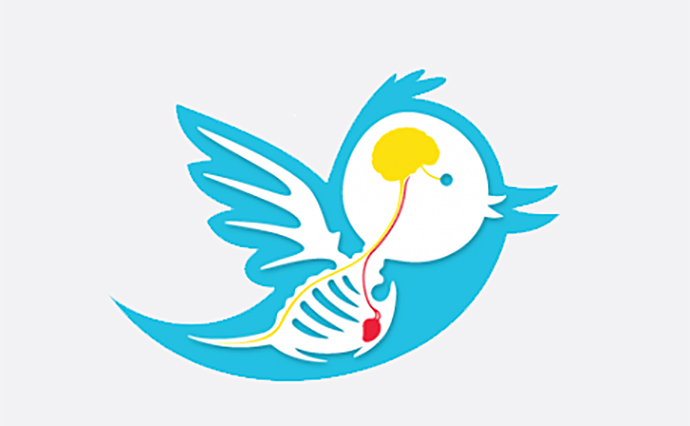
Last month I decided to focus more on Twitter. I joined Twitter a decade ago but rarely engaged, probably for the same reasons that you don’t.
I’m vocationally dependent on social media. I maintain a robust mailing list of friends, clients and ‘followers’ (I’m important).
But increasingly the metrics of attention–that used to be spread far and wide across the Net–has suffered network effect, and is now corralled on FB, IG, and Twitter. Social media is the Internet now.
The Net has definitely been hijacked and monopolized. And for oldtimers like me, it’s sad and creepy. You’d have to have been there, back in the mid-90s, when the Net took off. It was a lot of fun.
Although I’m older, I was similar in spirit to those Millennials that crawled out of the womb and hopped right unto a computer keyboard. I built my first website in 1997, and my blog Giving Head (for real title) launched in ’99 before blogs were a thing.
95% of my clients discovered my work from my online presence. And my art direction for an arts foundation in San Francisco requires a continual online engagement. Like many folks today, I’m in for the long haul. The Net sustained me financially for years. Until the dawn of social media.
I mention the above because my scrutiny of FB, which I consider political activism, always elicits the same response: “Why don’t you just leave FB?” I must get a couple DMs like that each month. And my response is the same: “It’s kinda my job to help you pay attention.” Like you, I want to live in a democracy for as long as possible and FB is helping destroy the mechanism, the checks and balances that sustain democracy.
Anyway, Here Are Twelve Things You Will Benefit From Knowing About Twitter Read more
American Dada: Some Suggestions to Consider

Who could possibly want to read another take-apart or close reading of the 2016 presidential election? Not me. And yet…
Rather than opinionate I’ve tried to cull some out-of-the-loop views to consider, punctuated with some random insights. So I’ll just toss these out there like bird seed. Peck at what you like and leave the rest. And if you skip the whole thing, well, who could blame you?
• The nature of reality is that it will not be cornered or tracked or predicted; in the same way that a dream you have at night — free from your ego’s edits and preferences — is a wild card narrative unfurling beneath your closed eyes. Reality and dream — only our waking state appears to separate them.
The Internet has taken the entire contents of the collective unconsciousness and the savage qualities of the id, and placed the amalgam at our beck and call, on phones and monitors across the globe. This is a form of dream overload.
Anytime you have a screen of any sort (be it your iPhone’s or your desktop computer’s) you’ll have a projected dream moving across it, right there in front of your face. And we have been trained for this response; first by cinema and then by television — though now we are participants, content creators, Tweeters, bloviators, in the dream narrative that shimmies and glows everywhere on our devices.
We are tethered to them in a symbiotic loop cycle, always tapping and poking the images and the data forward. Everywhere I go now it’s people shuffling about with their heads tilted down and scanning, scanning, scanning their phones for the latest tidbit or section from the collective dream field.
The dream bubble most liberals and Democrats floated within depicted a new world, with the first female president and all that was wonderful with a Clintonian dynasty redux. And the dream bubble of the GOP and its advocates was, of course, completely polarized from the other. The dynamism of life is continually oscillating and pulling the rug out from us — it just burns more when we’re the particular group experiencing the yanking. The collective dream field of the two factions never allowed for intersection or integration — the victor of this malfunction was Trump. And so here we are.
• A good way to actually integrate your experience of the past week is to view the entire event as a happening within a dream narrative. Imagine you went to bed and had this particular dream. What does it tell you about yourself? I don’t mean this to be a navel-gazing experiment, but an actual process of gaining insight to shadow parts of the psyche. Why? Because most of that regressed material is usually projected out onto what is perceived as the enemy or the tyrant or the monster or ogre — and, wow, with The Donald, we seem to be getting the entire package of horrors. Or are we?
What if our projections actually feed into the monstrous narrative that we’re terrified of? What if like Dave Chappelle offered in his opening monolouge on SNL, we gave Trump a chance, wished him luck and waited a bit to see if he can do a good job? How hubristic is it to assume we know exactly what’s to come (and many of us are acting that way)? It’s sort of embarassing, especially after what you’d think would be the humbling aftereffects of the election.
What if you settled into the notion that Trump is a human being like you are, with a heart, and longings, and wishes — a complex psychological history that feeds into his fear of being a failure and doing a bad job? Can’t we all relate to these qualities? What would happen I wonder if we each held this upcoming period in abeyance, supported by good wishes? I’ve been playing with this notion when I wake up in the morning and feel as tho someone has stomped on my head. It’s an interesting experiment in thought projection. Play around with it.
• “Life happens too fast for you ever to think about it. If you could just persuade people of this, but they insist on amassing information.” — Kurt Vonnegut
Here’s a ‘real’ world issue: The endless glut of news and opinion that’s vomited out of computer monitors worldwide has eroded our ability to think for ourselves.
To attempt to manage and metabolize the spew of data, updates, breaking stories, scandals, Wiki dumps, investigative exposes isn’t humanly possible. In fact, it’s fucking crazy-making.
Worse is the inability to know what is factual and what is fiction. This later predicament has grown exponentially throughout the year. And social media is the main culprit.
Forty-four percent of Americans get their news from Facebook, according to the Pew Research Center, filling a void left by the declining ranks of newspapers. By comparison, only 2 in 10 U.S. adults get news from print newspapers today. Facebook vets nothing and Mark Zuckerberg is groaningly disingenuous when he said: “Voters make decisions based on their lived experience.” Right, Mark. And many people are actually living their online life locked completely within Facebook’s echo chamber and gated community.
• Something I’ve suggested to a lot of friends and folks writing to me since Election Day: Round up a copy of the Masterpiece Theater miniseries I Claudius. (Or search for the production on Youtube, I think the entire series is posted up there.)
Situations like the ascendancy of Donald Trump have occurred since the dawn of time, in various permutations — though the 1976 mini-series based on Robert Graves‘s book, gives you a decidedly Western version of the wild ruptures within politics: The backroom games, shadow government, the Mafia-like forces that corrupt and poison, the descent of greatness and ascent of madness.
Much of this has to do with what Nietzsche wrote: “Insanity in individuals is something rare — but in groups, parties, nations and epochs, it is the rule.” The point being, grasping the concept that when it comes to mobs of people very little ever changes. Individuals have opportunities to evolve, but socio-cultural evolution is glacial at best. I Claudius demonstrates that ‘interesting times’ are always happening. Yes, some phases are more devastating than others, but always this predicament haunts human beings attempting to govern themselves. We are incredibly slow learners. We need to face that. Read more
A Facebook Facecrime and My New Book

When an author approaches the end of writing a book it’s not unusual for the unconscious to rebel and throw up roadblocks on the path to completion. I assume this is true for any artist serious about his or her long-term project. A day of reckoning always looms.
These rogue psychic forces are related to the process that accompanies severance. To end the creative flow is to relinquish control.
Worse, there will follow the book’s actual existence, after the fact; a harsh distinction between the fantasy that accompanied imagining the project and its materialization.
As Jung’s right-hand agent, Marie-Louise Von Franz noted: “People sometimes resist becoming creative because one’s would be creativeness is always so much more impressive … than the little egg one lays in the end when birth takes place!â€
And so, not surprisingly, as I’m starting to push my new book Astrology, Facebook and The Zombie Apocalypse into the final laps around the track, my nocturnal dreams — the great compensatory forces in life — have become more forceful and direct.
Some backstory:
Many years ago I took a job as a telephone psychic because I needed money. What started as a lark turned quickly into a kind of purgatory until I realized that I’d a rare opportunity to turn something grindingly tedious (and bizarre) into gold. I wrote and sold my book about my experiences to a mainstream publisher. And then later that same book became the fodder for an upcoming television series. Read more
Facebook & How to Preserve The Creative Drive

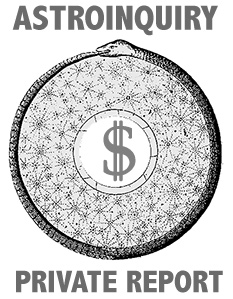
When you’re a writer Facebook becomes a peculiar problem.
Famous writer Zadie Smith, in her list of 10 rules for writers, says that working on a computer without wi-fi is essential. I guess she was tempted, while writing, to make too many visits to The New York Review of Books and start grazing.
In this post, I’m using the word peculiar to evoke its deeper etymology. Peculiar’s Late Middle English usage was to indicate: “Belonging to one person.” But even more peculiar (and further back in time) is the word’s Latin origin and usage, which is related to cattle and how those cattle belonged to you, were your property.
The Latin etymological tree goes like this:
pecu (cattle) > peculium (property) > peculiaris (of private property) > peculiar (particular, special).
So this is good to note, because you need to guard your stock when you’re working on your own creative stuff; to keep your words in your own writing stockade — rather than let them roam too much within the Facebook dream field. Grazing.
Secrets, Tips and Suggestions
Over the years, as a writer and incessant Facebooker, I’ve found that I can use Facebook to my own advantage, and so can you:
![]()
• The Truth About Mercury Retrograde
• Planetary Ennui: The Nostalgia for Samsara
• How To Make Facebook Your Slave and Preserve Your Creative Drive
• The Power, Beauty, and Wonder of the Horoscope’s 12th House
• Imbeciles at the Gate: How The Internet Destroys Astrology
• How To Escape From the Torture of Self-Help Hell
• Depression and the Solar Consciousness
• Secrets of the Heart: Love is an Action Not A Feeling
• Create Your Own Archetype & Call It You: An Escape from Evolutionary Astrology
• Redefining the Oxymoron of Sex and Marriage
• Death is the New Black
• How To Write About Astrology (Especially How Not To)
• Astrology, Ants, Hives, Essence, and Types: A Gurdjieffian View
• Final Notes About the Life-and-Culture-Changing Uranus-Pluto Square
